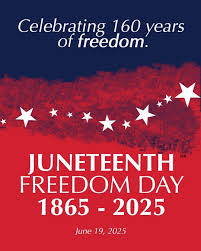FnF News
FNF News | Politics & History
Published: June 20, 2025
By: Khadija Khan, Senior Political Correspondent
Juneteenth and the Party Switch Myth: Who Really Freed the Slaves—and Who Kept Them Bound?
Washington, D.C. — As Juneteenth celebrations sweep across the United States with corporate sponsors, official federal recognition, and school parades, a bitter truth cuts through the confetti: the very party that claims to stand for Black America today may have once stood against its freedom. With political partisanship at an all-time high, some conservatives are reminding the country that Juneteenth—a day commemorating the end of slavery—was made possible not by Democrats, but by Republicans.
And not just any Republicans. The Republican Party was founded in 1854 specifically to oppose the expansion of slavery. Its first successful presidential candidate, Abraham Lincoln, signed the Emancipation Proclamation in 1863, and Union soldiers, under Republican command, delivered that message to the final enslaved Black Americans in Galveston, Texas, on June 19, 1865.
“Let’s get the history right. Juneteenth was brought to you by the Republican Party,” said political historian Dr. Carol Swain, formerly of Vanderbilt University. “The Democrats opposed every step of Black advancement until the 1960s—and even that shift is questionable when you examine outcomes.”
A History the Media Won’t Touch?
While Juneteenth has been embraced by the media and Democratic leaders—including President Joe Biden, who signed the federal holiday into law in 2021—few acknowledge the party that made emancipation a reality.
- Every single Southern Democrat voted against the 13th Amendment to abolish slavery.
- The Democratic Party was the party of the Confederacy.
- The KKK was founded by Confederate veterans aligned with Democratic resistance to Reconstruction.
- Democrats imposed Jim Crow laws that disenfranchised and segregated Black Americans for nearly a century.
“The Democratic Party’s sins are not ancient history,” said conservative commentator Candace Owens. “They are woven into the very institutions they now use to control minority populations—like public schools, welfare, and Planned Parenthood.”
The Great Society and the New Plantation?
In 1964–65, President Lyndon B. Johnson—a Democrat—ushered in the Great Society programs, which included Medicare, Medicaid, food stamps, and federal housing support. While these were touted as anti-poverty reforms, critics argue they had devastating long-term effects on the Black family unit.
According to data from the U.S. Census Bureau, in 1965, roughly 75% of Black children were born into two-parent households. By 2023, that number had fallen to less than 40%.
“The state became the father,” said economist Thomas Sowell, who has long argued that welfare incentives eroded family cohesion. “Slavery couldn’t destroy the Black family. The welfare state did.”
Even the late Daniel Patrick Moynihan, a Democrat and Johnson advisor, warned in his 1965 report, The Negro Family: The Case for National Action, that government dependence would destabilize Black communities. He was ignored.
Schools, Streets, and Sterilization
Critics today argue that public schools, particularly in Democrat-run urban centers, have become what some call “intellectual plantations.” Literacy and math scores remain abysmal in inner-city schools—despite decades of increased funding and bureaucratic expansion.
“They don’t teach reading; they teach resentment,” said school choice advocate Corey DeAngelis. “And the unions that run them are aligned entirely with the Democratic Party.”
Likewise, the targeting of Planned Parenthood facilities in minority neighborhoods has raised questions about eugenicist roots. Margaret Sanger, the organization’s founder, once promoted sterilization for “unfit” populations and spoke at KKK rallies.
“Planned Parenthood is not about empowering women,” said Rep. Byron Donalds (R-FL). “It’s about limiting certain populations—and they’ve never been held accountable.”
Did the Parties Really Switch?
Democrats often argue that the “party switch” in the 1960s, following the passage of the Civil Rights Act, changed everything. But historians point out that only a handful of Southern Democrats actually became Republicans. The South gradually shifted red over the next 40 years—but largely due to economic issues, national security, and cultural realignment.
“The so-called party switch is a myth,” said Dr. Wilfred Reilly, professor at Kentucky State University. “The Democratic Party’s power base shifted, but its tactics of dependency and social control persisted.”
Juneteenth as Political Theater?
For critics on the right, modern Juneteenth celebrations are performative distractions—a form of symbolic virtue signaling that ignores real policy failures in Black communities.
“They give us holidays but not safety. Murals but not jobs. Hashtags but not real education,” said conservative activist Brandon Tatum. “The same Democrats who praise Juneteenth are running the cities where Black lives are most at risk.”
The political messaging surrounding Juneteenth now feels, to many, like a co-opted narrative. A day that once celebrated Republican emancipation from Democratic oppression is now led by Democrats who still won’t confront their own institutional failures.
Conclusion: History Isn’t Just About the Past
As Juneteenth becomes more mainstream, Americans are beginning to ask tougher questions about which party truly represents Black advancement—and which one has consistently stood in the way.
The Republican Party of 1865 may not resemble today’s entirely, and the Democratic Party has undeniably changed in tone. But facts remain:
- It was Republicans who freed the slaves.
- It was Democrats who built the system of segregation and suppression.
- And today, the modern plantation may look less like cotton fields—and more like classrooms and clinics.
Juneteenth is not just a time for celebration. It’s a time to tell the truth.

